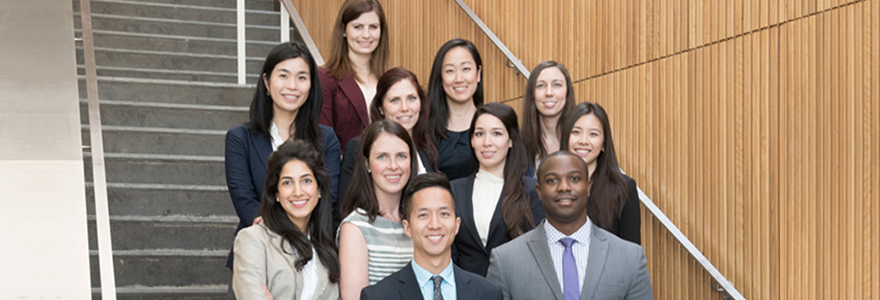Residency Program

The Plastic Surgery Residency program at the Schulich School of Medicine & Dentistry, Western University is a 5-year comprehensive training program accredited by the Royal College of Physicians and Surgeons of Canada. The current Program Director is Dr. Tanya DeLyzer and the Training Program accepts two new residents per year.
The two core surgery years and three years of specialty training are centred at the teaching hospitals of Western University (London Health Sciences Centre comprised of University Hospital, Victoria Hospital and the Children's Hospital of Western Ontario) and St. Joseph's Health Care.
A community plastic surgery rotation is available in either Windsor or Stratford, Ontario and as well, other elective blocks are available outside of London during the second year.
Quick Facts
- Plastic Surgery transitioned to CBME based training on July 1, 2020 - all incoming residents train through this stream.
- There are opportunities for interprovincial and international electives while training in our program.
- There is a mandatory community plastic surgery rotation.
- The ratio of residents to faculty is 1:1.
- See program description for research requirements.
PGY1
The academic year is divided into 13 blocks, each block is 4 weeks in length:
- Orientation/Boot Camp/Plastics (Orientation/boot camp 2 weeks; on Plastics service approx. 2 weeks)
- Trauma (1 block)
- General Surgery (2 blocks)
- Orthopedic Surgery (2 blocks in the HULC)
- Internal Medicine (1 block)
- Emergency Medicine (1 block)
- Electives (2 blocks)
- ENT (1 block)
- CCTC (2 blocks)
PGY2-5
The PGY2-5 years are dedicated to Plastic Surgery rotations. Teaching and surgical case exposure is on an incremental basis over the five years, leading to chief resident positions in each of the three hospitals for four-month rotations in the final year. Various plastic surgery sub-specialty units exist at the three teaching hospitals (LHSC - University Hospital & Victoria Hospital Campuses, and St. Joseph's Health Care) including craniofacial surgery, burn surgery, micro and hand surgery and cosmetic surgery.
In addition, 2nd Year residents have a dedicated Burns rotation at Sunnybrook Hospital in Toronto, a Community Plastics rotation, and two dedicated Research Blocks. Residents who wish to enroll in the Masters of Surgery Program also receive an additional three dedicated Research Blocks.
Residents also have a 6-week elective in their 4th Year and can choose their placement with Program Director approval.
Research:
Each resident is required to complete a research project annually which is presented at Annual Resident Research Day which occurs in the spring/summer each year.
Fully staffed BioEngineering, Clinical Outcomes, and Cell Biology laboratories are part of the Roth | McFarlane Hand & Upper Limb Centre at St. Joseph's Health Care which is an inter-disciplinary facility comprised of Plastic and Orthopedic surgeons.
An MSc in Surgery degree program is offered by Western which is tailored to the unique needs of surgical trainees; providing an intensive research experience and a solid foundation for success as a future academic surgeon. 3 dedicated research blocks in the second year of residency helps to facilitate this unique opportunity.
Seminars:
The teaching program consists of weekly morning seminars (with protected time for residents), weekly inter-hospital Grand Rounds, and a monthly Journal Club. Twice weekly rounds are held at the Roth | McFarlane Hand & Upper Limb Centre on subjects related to hand surgery. A Microsurgery Training Lab is organized for residents each year at the Surgical Skills Laboratory at St. Joseph's Health Care. A cadaver laboratory dissection course is also offered.
Selection Criteria:
It is recommended that candidates should have a proven interest in our specialty as demonstrated by electives in plastic surgery.
References should be obtained from at least two academic specialists in plastic surgery. The Western University Division of Plastic Surgery considers applications from all Canadian medical schools equally. Residency training spots are allocated through the CaRMS Matching Service.
Additional Comments:
Residents write the Canadian Society of Plastic Surgeons' In-Training Examination each February. On-call responsibilities comply with the collective agreement of the Professional Association of Residents of Ontario (PARO) and fall within the limits of 1 in 3 (out-of-house call), or 1 in 4 (in-house call). The structure of the Program is such that graduates of our training program are ready to pursue either an academic career or a community plastic surgery career (with or without further fellowship training). For more information regarding responsibilities and privileges of the Western postgraduate training programs, review the Western Resident Handbook and the website of the Western Postgraduate Medical Education Office.








